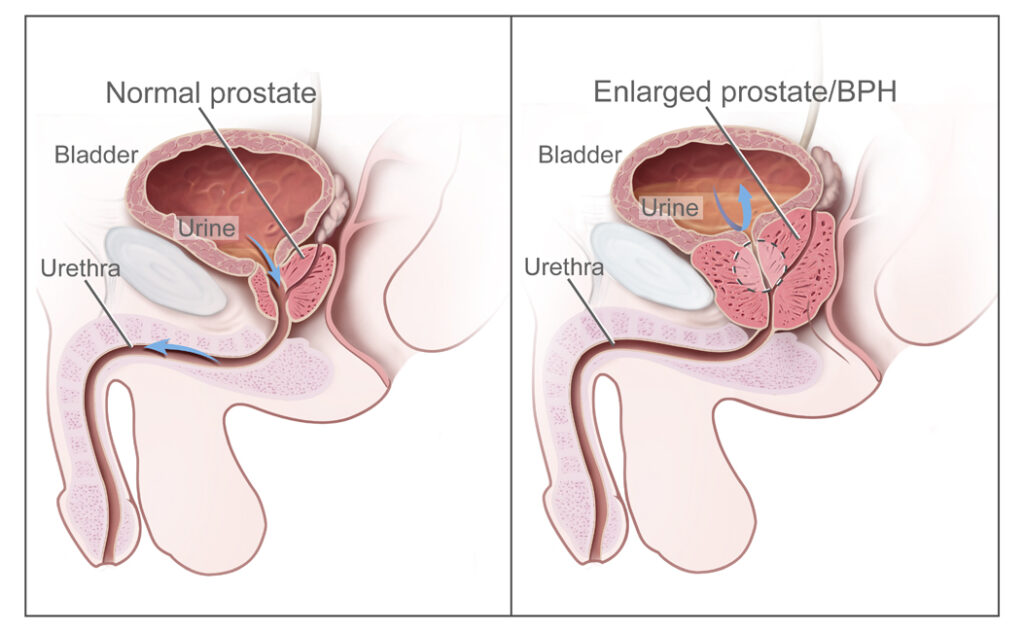
What is Benign prostatic hyperplasia (BPH)?
BPH is not a malignant disease, it is an enlargement of the prostate gland which begins after the age of 60 years.
What are the Causes of Benign Prostatic Hyperplasia?
• Hormonal imbalance
• Changes in the growth of the cell
What Indicates The Presence Of Benign Prostatic Hyperplasia?
• Slow urine flow
• Difficulty in passing urine
• Urine flow intermittent
• Dribbling at the end of urination
• Urgency to urinate
• Urine frequency increases at night
• Patient has to strain while urinating
• Difficulty in emptying the bladder
• Urinary tract Infection
• Kidney function affected
• Stones formation in the bladder
What is the Differential diagnosis of Benign Prostatic Hyperplasia?
• Prostatitis
• Urethral Stricture
• Urinary Tract Infection
• Bladder Cancer
• Trauma to bladder
• Stones in bladder
• Chronic Pelvic Pain
• Interstitial Cystitis
What Examinations Are Needed To Know The Presence of Benign Prostatic Hyperplasia?
• Digital rectal examination
• Urinalysis
• Trans-rectal ultrasound
• Kidney function test
• Blood test
What are the Complications of Benign Prostatic Hyperplasia?
• Inability to urinate
• Kidney Damage
• Urinary stones
• Blood in the urine
• Urinary tract infection
How to manage Benign Prostatic Hyperplasia by diet?
• Avoid food containing cholesterol, carbohydrate
• Avoid too much sweet food
• Avoid alcohol or tobacco.
• Consume food rich in omega-3 fatty oil
• Eat lots of fruits, vegetables, whole grains and soy products
What are the Homeopathic treatments for Benign Prostatic Hyperplasia?
• Apis mellifica
• Causticum
• Clematis
• Sabal serrulata
• Thuja
• Gelsemium
• Hydrangia
• Senecio

 If you are unsatisfied with our treatment and do not want to continue the medicines you can ask for refund within 24 hours of making the payment.
If you are unsatisfied with our treatment and do not want to continue the medicines you can ask for refund within 24 hours of making the payment.